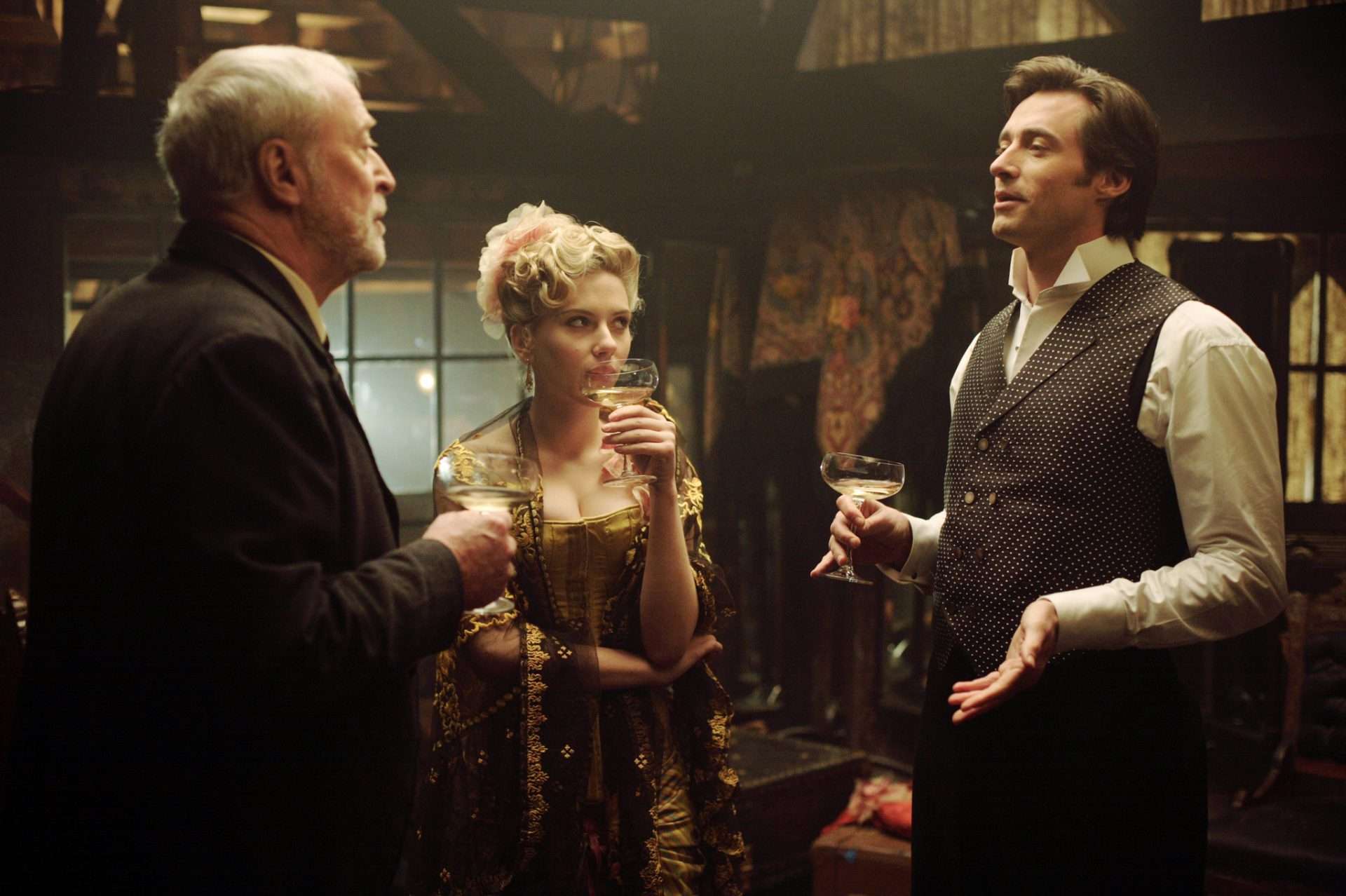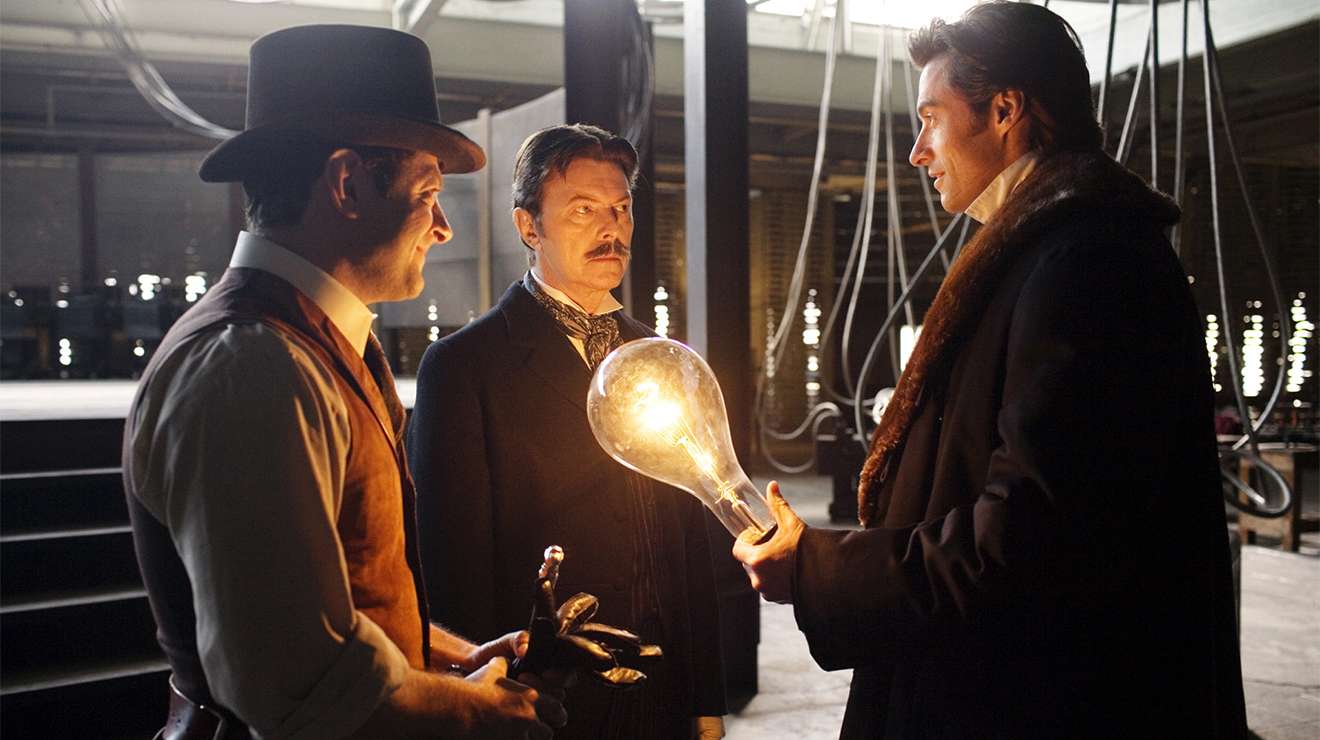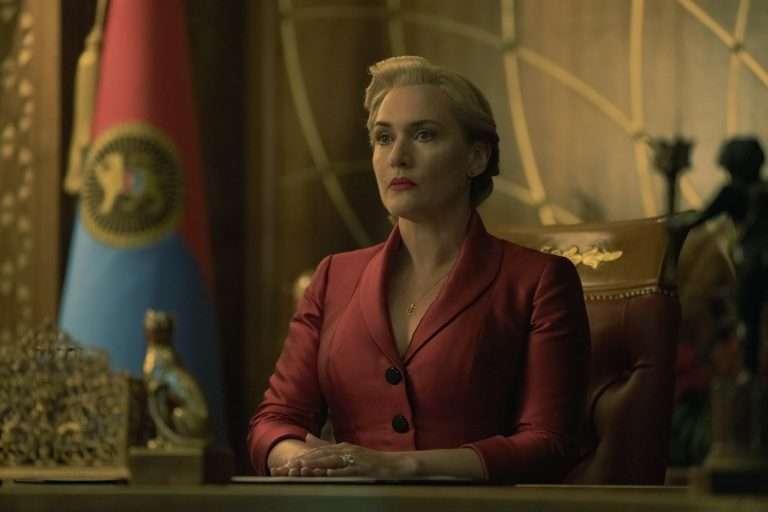If you’re a fan of cinema, you’ll know the name Christopher Nolan. The director is one of the very few modern filmmakers who still gets to bring bold, creative visions to life on a blockbuster scale. The reigning champ of the intellectual box office hit, Nolan has enjoyed a storied career in Hollywood thanks to his consistency in producing pulse-pounding cinema that also has the capacity to make you think. His obsession with the theme of time, invisible special effects, and multi-layered plot structures have dazzled film viewers for decades at this point.
Nolan studied English Literature, believe it or not, at University College London. While at university, he was the president of the Film Society and met his wife and future producing partner, Emma Thomas, on campus. His first feature film was 1998’s “Following,” but his career really took off with the groundbreaking “Memento” (2000). The Guy Pearce-starrer established Nolan’s current standing as a cinematic mastermind – the film’s temporally crisscrossing structure is still studied by editors today.
Things only took off from there. The director worked with Al Pacino and Robin Williams on “Insomnia” (2002) before getting the job that would change his career: helming “Batman Begins” in 2005. The reboot of the caped crusader’s story was a solid starting point for what would go on to become one of the most successful film trilogies of all time: “The Dark Knight trilogy,” comprising Begins, 2008’s “The Dark Knight,” and 2012’s “The Dark Knight Rises.” Besides those cultural monoliths, Nolan also directed “Inception” (2010), “Interstellar” (2014), “Dunkirk” (2017), “Tenet” (2020), and, of course, “Oppenheimer” (2023).
But there’s, of course, one film that we’re missing in that classic lineup, and it’s arguably the director’s most underrated and underseen film: 2006’s “The Prestige.” Starring Christian Bale and Hugh Jackman, this is a movie that contains both Nolan’s penchant for elaborate plot structures and one of the best twists in any film from the 21st century. It speaks to themes that have run through the director’s career: obsession with one’s craft at the expense of family, the ways in which time shapes us, and the ways in which something pure can be corrupted by desperation. It’s a brilliant film, and it’s one of the most complicated films Nolan’s ever made. That’s why we’re about to break it down.
Fair warning: this article is going to dig deep into the themes and underlying meaning of Christopher Nolan’s “The Prestige.” We’ll be spoiling basically every part of the film in the process, so steer clear of this article until after you’ve seen the movie. Trust us: this isn’t an experience you want to be spoiled for you.
For the purposes of clarity and comprehension, we’ll be going over the plot of the film in chronological order before we dive into the depths of the film’s themes. Buckle up because you’re in for a ride.
The Prestige (2006) Plot Summary & Movie Synopsis:
The Death of the Assistant
The film is set primarily in late twentieth-century London. Robert Angier (Hugh Jackman) and Alfred Borden (Christian Bale) work as amateur magicians and stagehands with stage engineer John Cutter (Micheal Caine). Angier is married to Julia McCullouch (Piper Perabo), the assistant to the act’s headlining magician. Frustrated by the safe, unremarkable tricks they conduct every night, Borden suggests changing the trick where Julia escapes from a water tank after being tied up. Instead of tying a simple knot, he proposes tying a more complicated configuration called the Langford Double. One evening, Julia agrees to go ahead with the difficult knot in the spur of the moment without telling Cutter or Angier.
This culminates in an unfortunate incident – the assistant drowns in the tank because of Angier’s complicated knot and her own misguided notion that she would be able to undo the knot while underwater. At Julia’s funeral, Borden attempts to offer his condolences to Angier, only to be shunned and asked which knot he had tied. While the attentive viewer will know the answer, Borden claims not to know. Angier, of course, does not believe him. He is haunted by the drowning of his wife, despite Cutter’s attempt to comfort him by saying that a sailor he once knew described drowning as feeling like going home. Angier even attempts to take his own life by drowning himself in his bathroom sink. He is unable to, struck by flashbacks of that fateful night.
A Bitter Rivalry
Borden continues to live his life, finding love in his relationship with Sarah (Rebecca Hall), a woman he meets while performing another act with Cutter. The two marry, and Borden leaves Cutter behind. He begins performing his own amateur shows to make ends meet and provide for his married life with Sarah. One night, during one of these shows, Angier shows up disguised as an ordinary audience member. He is selected by Borden’s assistant, Fallon, to participate in a dangerous trick where Borden has to catch the bullet shot towards him by an audience member. Angier meddles with the gun handed to him, turning the prop gun into a dangerous firearm. He holds Borden at gunpoint and demands to know which knot he tied.
Borden’s assistant Fallon tries to intervene as Borden fails to answer – Angier shoots, striking Borden in the hand and maiming him permanently. Angier flees the scene as his rival screams in pain – the man loses three of his fingers to the incident. This kicks off the pair’s bitter rivalry. Angier attempts to move on from the death of his wife by reteaming with Cutter for a new magic act, starring Angier as the headlining magician. Unfortunately, Borden chooses this moment to strike back. He poses as a volunteer during Angier’s first show, sabotaging a trick involving a collapsing bird cage. This leads to an audience member being injured and Angier’s shows being canceled.
The First Transported Man
What follows is a saga in which each man tries to outperform the other. Borden’s family grows after Sarah has a child. Angier, on the other hand, is unable to move on and is driven by his hatred of Borden. The man is jealous of Borden’s seemingly perfect life and feels he was robbed of the same because of Borden’s mistake with the knot.
One evening, during one of Angier’s regular excursions into Borden’s audience, he witnesses Borden perform a seemingly impossible trick, The Transported Man. In the trick, Borden steps inside a cupboard at the left of the stage after throwing a ball to the right side. The ball bounces in front of another cupboard on the right side of the stage, where Borden steps out and catches it.

His curiosity with regards to how Borden does the trick only worsens his obsession with Borden, despite Cutter’s insistence that Borden must simply be using a double to perform the trick. In his search for answers, Angier delves deeper into madness. He decides to steal from Borden, emboldened by his belief that Borden stole everything from him.
The New Transported Man
Angier reconfigures his act, hiring a new stage helper named Olivia (Scarlett Johannson), with whom he begins to form a relationship. He also hires a man named Gerald Root to act as his double. Root looks exactly like Angier (he’s also played by Hugh Jackman), but he is a drunkard and showboat. Nevertheless, Angier uses Root to perform the same trick as Borden with greater flair, earning more public appreciation and success even though Borden sees through it immediately.
Angier then decides to send Olivia to work for Borden as a spy, in an attempt to find out the secret to how Borden does the trick. Olivia brings Angier one of Borden’s diaries, but all the words are encoded in a cipher. Anger persists in stalking Borden but overcalculates – Borden infiltrates his show and sabotages Angier’s version of The Transported Man. Angier breaks a leg due to the sabotage of the switch, and Borden publicly humiliates him by revealing that he was using a double to the audience. Borden uses the opportunity to advertise his own show. This causes Angier to completely lose his mind. Aided by a furious Cutter, he goes so far as to kidnap Fallon and bury him alive in order to blackmail Borden. He successfully manipulates Borden into revealing the cipher that encodes his diary. Borden tells him the codeword: TESLA.
Meeting Nikola Tesla and Sarah’s Death
This is where “The Prestige” begins to enter the realm of science-fiction. Assuming the codeword is a hint as to how Borden was conducting his version of The Transported Man, Angier travels to America to meet with Nikola Tesla (David Bowie) himself. Angier is greatly impressed by Tesla’s technology (as introduced to him by Tesla’s assistant, Mr. Alley (Andy Serkis)). He asks the inventor to create a machine that can literally transport physical objects from one place to another. In the meantime, Angier decodes Borden’s diary, through which he learns about Borden’s home life. He realizes that Borden is cheating on Sarah with Olivia, resulting in the dissolution of his marriage.
Angier finishes Borden’s diary and realizes that Olivia is in love with Borden herself. She delivered the diary to Angier at Borden’s request: it doesn’t have any information about the secret of The Transported Man. Borden’s goal was to send Angier on a wild goose chase to America, and the cipher was just that: a cipher. Angier is, of course, enraged once he realizes this. He goes to Tesla in order to berate him for leading him on. However, to his surprise, he learns that Tesla has succeeded in creating the machine. Driven to leave by a mob of men sent by his own rival Thomas Edison, Tesla warns Angier that he must pay a heavy price every time he uses the machine: it does not work perfectly.
The Real Transported Man
Angier makes a comeback to perform 100 shows as his final run as a magician, with the climax of each show being The Real Transported Man, which uses Tesla’s transportation machine. His career flourishes, and the show becomes a resounding success, with hundreds leaving the show in amazement every night. Borden attempts to discern how Angier performs the trick but, despite repeated attempts, is unable to do so.
Meanwhile, Borden continues his affair with Olivia. Sarah is convinced that Borden is hiding something from her and becomes convinced she knows what it is. Her inability to live with the belief that Borden might be lying to her drives her to kill herself by hanging. Disgusted by Borden’s cold reaction and his continuing rivalry with Angier, Olivia leaves him.
With seemingly everything going downhill in his life, Borden confesses his hopelessness to Fallon. In one last stab at the truth, Borden attempts to go backstage to find out how Angier does his trick and, during the trick, sees Angier falling through a trapdoor underneath the stage. Borden witnesses Angier fall into a water tank (the same kind that Julia drowned in at the start of the film). As Borden attempts to free him, Cutter also makes his way backstage and sees the ordeal. The man inside the tank drowns, and Borden is seen as the guilty party.
On Death Row
Borden is then put on trial for the murder of Angier, and after Cutter provides his testimony, the man is found guilty of murder and sentenced to death by hanging. While on death row, he receives an offer from a man representing someone named Lord Caldlow: the rich aristocrat offers to adopt his daughter (who was to be removed from the care of Fallon and put into an orphanage) in exchange for the secrets to his tricks.
It’s here that Borden receives Angier’s diary and learns of his journey to meet Tesla and find a machine to recreate The Transported Man trick. He learns that Angier somehow intended for Borden to be framed for his murder and receive his diary in prison. Confused, Borden agrees to sell his secrets to Lord Caldlow but demands that he be able to say goodbye to his daughter one last time before he does so.
Lord Caldlow himself brings Borden’s daughter Jules to the prison, and Borden is shocked to learn that Lord Caldlow is Angier himself. Borden tries to unsuccessfully alert the authorities but Angier leaves before he can. Utterly defeated, Borden accepts his fate, informing Fallon of Angier’s deception and apologizing for all that transpired. He is hanged by the authorities and dies.
The Final Reveal
In the final act, Cutter helps Lord Caldlow store the machine responsible for the Transported Man in an underground storage area filled with many identical water tanks. Cutter, regretting his testimony and aiming to hurt Angier for what he did to Borden, finally tells him that he had lied about drowning, feeling like going home, and informs him that it is, in fact, agony.
This sends Angier into a vision of regret, which is cut short by a mysterious figure who arrives and shoots him. This figure is revealed to be Borden, who is somehow still alive. As Angier bleeds out, both men finally explain how exactly they did their tricks. It is revealed that Borden was, in fact, two men: twins, living a single life together. One twin loved Sarah, the other Olivia, and both made this sacrifice in order to dedicate themselves to their craft as magicians. This was how the original transporting man trick was achieved.

Angier reveals that Tesla’s machine didn’t transport objects but duplicated them, leaving one duplicate in the machine and the other some ways away. Every night of the performance, one version of Angier would die in a water tank hidden underneath the stage, while the other completed the trick after suddenly appearing in another part of the hall. Angier was essentially murdering himself over and over for the trick. Borden kills him and leaves to spend his life with Jules, his daughter. This is where the film ends.
The Prestige (2006) Movie Ending and Themes Explained:
Let’s be honest: Nolan has made a lot of films that require explanation. From the spinning top that wobbled through the final frame of “Inception” to the brain-numbing loop that constituted the ending of “Tenet,” Nolan enjoys leaving audiences pondering exactly what happened at the end of his films. “The Prestige” is no different – it’s structured in such a way that it rewards repeat viewings, with the goal of always leaving you with a greater appreciation of how exactly it accomplishes its incredibly complicated storytelling.
This is a story about obsession, deceit, and maniacal dedication to one specific goal. The characters of Borden and Angier are so single-minded in their pursuit of one-upping each other and becoming great magicians that they lose sight of their own humanity. Over the course of the film, the characters become husks of themselves, driven primarily by misguided ambition and depressive bitterness. In the process, the audience is made privy to the incredibly destructive nature of obsession.
Nolan accomplishes all of this with his usual theatrics – he’s just as much a showman as Angier. The film utilizes an incredibly complex and layered structure to deliver its story – in the present, Borden reads about the recent past through Angier’s diary. In the recent past, Angier reads about the distant past in Borden’s diary. The three timelines eventually converge in the film’s third act, and Nolan and editor Lee Smith somehow deliver this elaborate intertwining of storylines without completely overwhelming the viewer – that’s magic for you!
Ultimately, the film is about more than just fancy editing and cool twists. At its core, it delves into themes of family and the difficulty one faces in balancing a career and a personal life in a way that is fair to all involved parties. Nolan and his brother/co-screenwriter, Jonathan Nolan, have packed a lot in here. There’s a lot more going on underneath the surface than you’d think at first glance, so let’s dive in and recap the film’s many layers and mysteries.
Dedication to Craft
One of the most subtle and brilliant pieces of foreshadowing that the Nolan brothers implement is that of the Chinese magician that Borden and Angier see perform in the film’s first act. Unable to understand how the frail old man is strong enough to carry the fish bowl with his legs, Angier and Borden wonder what his trick is. It’s Borden who cracks the code, suggesting that the old man isn’t as frail or as old as he makes himself out to be. As they watch him shuffle and barely walk to his carriage, Borden tells Angier that it’s all an act: the Chinese magician pretends to be frail all the time in order to maintain the illusion of his act.
The words Borden uses are “total devotion to his craft.” Angier finds this hard to believe, unable to comprehend how someone could make such a massive sacrifice to their personal life for the sake of some trick. He says as much to Julia. Of course, the irony of this is that Borden is already dedicated in a similar manner – he’s already living a life of deception in order to facilitate his career as a magician. And over the course of the film, Angier, too, leaves behind his personal life (and the lives of dozens of his clones) in order to fully devote himself to his performance as a magician.
This is a theme that Nolan obviously relates to, as his films are often hyper-calculated and edited to an absolute tee. The filmmaker is a true technician, and the “craft” that Borden refers to isn’t simply limited to the art of magic – it could extend to any art or craft in the world. “The Prestige” is a film about what happens when you let your devotion to a craft consume you completely.
The Duality of Man
Another remarkable facet of that metaphor of the Chinese magician (which refers, of course, to Borden’s own deception) is how it ties into the film’s exploration of the duality of man. In another bit of heavy foreshadowing, when Borden first meets Sarah at one of his shows, she’s accompanied by a young nephew. The boy breaks down into tears when a trick involving a collapsing birdcage takes place. He assumes that the bird was killed inside the cage, and he’s right. When Borden tries to reassure him, showing him another bird inside another cage, the boy replies, “But where’s his brother?” Borden is shaken, and this moment has repercussions for the rest of the film.
In much the same way as the bird’s “brother” died in the cage, one of the Borden twins also dies by the film’s end – Borden has to murder his dual nature, the two halves of himself that pull him towards his career and his family life, in order to survive the film’s ending. His dual identity is constantly brought attention to, first by Sarah’s naive observation that he sometimes loves her and sometimes doesn’t, and ultimately by Angier’s reckless murder spree of his own clones (which, of course, mirrors the way in which one half of Borden dies by the film’s conclusion).
The Dangers of Rivalry
Another way in which the remarkable script for “The Prestige” echoes its story is in how the rivalry between Borden and Angier is paralleled by the real-life rivalry between Thomas Edison and Nikola Tesla. We don’t even see Edison in the film – only Tesla is present, and Nolan presents him as a sort of natural magician able to accomplish miracles through his understanding of the physical world. Brought to life by the late and great David Bowie, the film’s version of Tesla is not just a genius inventor but an innocent man hounded by the vindictive Edison, who won’t leave him alone to complete his research.
This speaks to the two opposing natures in both Borden and Angier. While there is a spark of creativity in both of them (Borden’s ingenuity and Angier’s showmanship), they both proceed to muffle that vision over the course of the film in favor of their baser instincts. The spark of creativity, one could say, is represented by Tesla, while the vindictive side of the two men is represented by Edison. It is the vindictiveness that ultimately wins out in Angier’s case, while the Borden twin who survives is able to leave behind his darkness in favor of the light (though note that he still shoots and kills Angier as one final act of revenge).
While Borden’s escape is a positive outcome, Nolan still leaves us with a haunting image: that of Angier’s clones suspended dead in the water tanks within which they drowned. As such, the ending to “The Prestige” is just as tragic for Angier as it is redemptive for Borden. The man loses everything in the pursuit of retribution, becoming a villain in someone else’s tale and exactly the kind of person he accused Borden of being at the start of the film.
The Cost of Obsession and the Importance of Family
This brings us to one of the major and most obvious themes of “The Prestige” – the ways in which obsession corrupts the soul and leaves it eternally wanting. Nolan’s critics often accuse him of being overly concerned with the technical aspects of his films at the cost of emotional purity and truth. This film, more than perhaps any other of Nolan’s films is an indictment of any such ethos. The film is incredibly critical of Borden and Angier, and both characters suffer dearly for valuing their careers and their respective obsessions over those close to them. Borden, ultimately, has to leave his obsessions behind in order to survive the ordeal with Angier – it’s clear that Nolan would much rather do the same.
Indeed, the three films that Nolan released in and around the time he was working on “The Dark Knight trilogy” (i.e., “The Prestige,” Inception, and “Interstellar”) are all in some way about the cost of obsession and about reuniting fathers with their children. “Interstellar” brings Cooper back to Murph, “Inception” finally gives Cobb a moment with his kids, and “The Prestige” ends with Borden realizing that his daughter is more important to him than anything else. Really, the fact that so many of Nolan’s films end with characters realizing their children are most important to them and abandoning everything else is quite lovely, and “The Prestige” is the first of his films to tug on this particular theme.
Ultimately, “The Prestige” is a puzzle box of a film that still manages to layer its complex plot mechanics with deep philosophies about how one should live one’s life. It covers the cost of obsession, the tragedy inherent to revenge, and the importance of family. But whether you watch it for its deep themes or its ingenious twists and turns, it’s safe to say that this film is one of the greatest narrative features of the 21st century. As well constructed as it is thoughtful, “The Prestige” is one for the ages.




![Lulli [2021] Netflix Review: An Unremarkable Romantic-drama despite its Engaging Parts](https://www.highonfilms.com/wp-content/uploads/2021/12/Lulli-2021-Netflix-768x384.jpg)

![The Man Who Stole the Sun [1979] Review – A Singular & Highly Ambitious Black Comedy](https://www.highonfilms.com/wp-content/uploads/2021/07/The-Man-Who-Stole-the-Sun-1979-768x432.jpg)

![So Long, My Son (Di Jiu Tian Chan) [2019] Review – An Intricately Plotted and Deeply Emotional Domestic Drama](https://www.highonfilms.com/wp-content/uploads/2020/04/So-Long-My-Son-2019-768x390.jpg)
